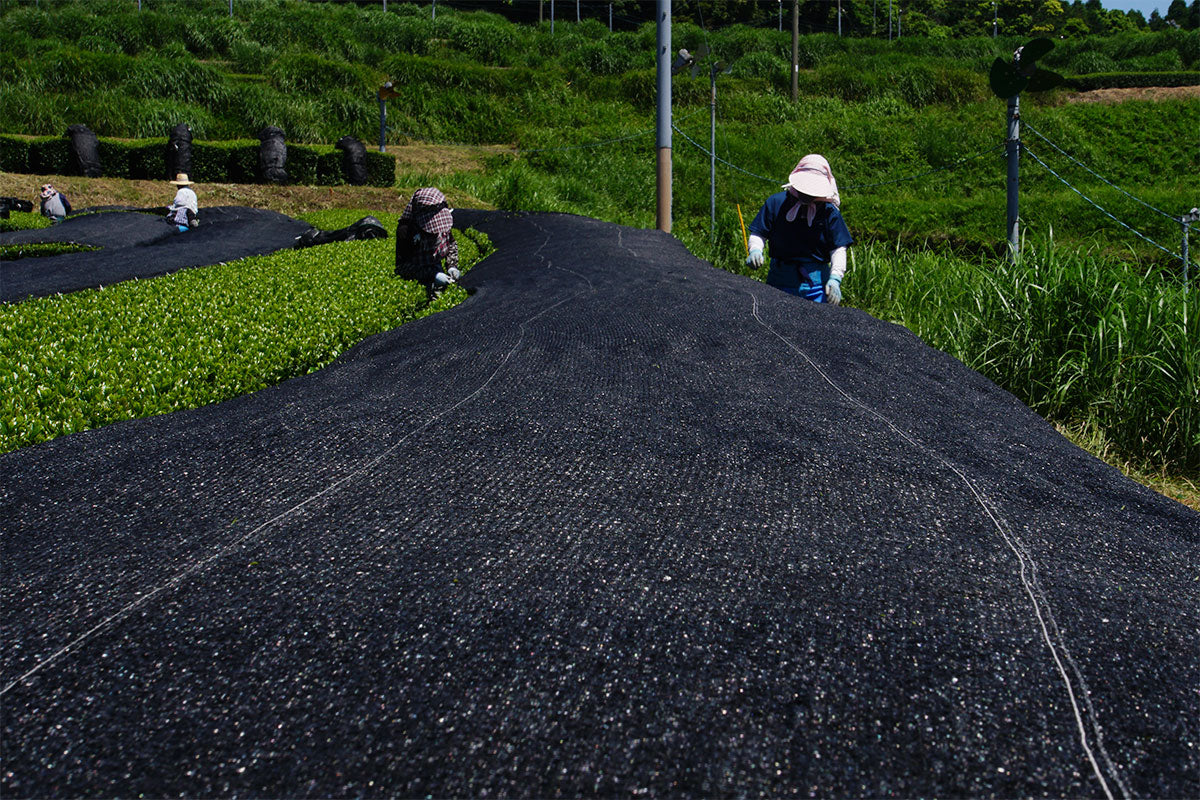

Tea and food traceability is the possibility of studying in detail any tea’s manufacturing journey step by step. The information about our high-quality matcha is so precise, we can track every step of it’s manufacturing from the farming practices the tea was subjected to, to its processing, packing, shipping, and even distribution. Our tracking process is specific and you can read all about the farmer who grew the green tea plant you’re enjoying!
The demand for safe, healthy, and high-quality food has made food traceability more than a novel idea, it has become a necessity to compete in the market for high-quality food. The FAO (Food and Agriculture Organization of the United Nations) defines "food traceability" as “the ability to discern, identify, and follow the movement of a food or substance through all stages of production, processing, and distribution.”
In order to ensure the effective tracking of each food traceability stage, Keicha Tea World has to adopt regulations and industry standards to guarantee the continuity of the information, safety, and transparency within our high-quality matcha production. Not an easy task if we realize how many different hands, people, and countries are involved in the process and the cost of implementing these measures. The FAO has published the Food Traceability Guidance with general requirements including identification, labeling, and related business documents. The EU General Food Law Regulation has proposed new regulatory standards and some other countries have introduced their own standards, but the global regulatory situation is still not quite clear.
The ideal tea and food traceability system is based on four pillars: product identification, data to trace, product routing, and traceability tools. The equipment to support this tracking system includes GPS technologies, thermal printers, 2D & 1D scanners, tags & labels, sensors, and radio-frequency identification.
There is also blockchain, a decentralized system that works as a high-tech ledger recording transactions and storing information on a global network. It helps by identifying any attempt at tampering with a food or high-quality matcha tea products before it reaches the retailer. For many of these reasons, it’s often called “the trust machine”.

Food traceability is becoming very important not only for consumers but also as a matter of public health, economics, and environmental safety. It reduces food fraud, food adulteration, and helps in disease management and environmental emergencies. It lowers the impact of recalls and liability costs, promotes productivity, and enhances brand confidence. New consumers are savvy enough to look for high-quality matcha and other food products that don’t just say “healthy” or “organic,” they want the whole story and guaranteed quality in return for their loyalty.
Even when products like processed tea have fewer public health issues, organic high-quality matcha tea suppliers need to be vigilant as there are still a large number of ingredients that can be added between harvesting and the final sale. The increased consumer awareness has made tea traceability something that is demanded more and more alongside food traceability.
As bulk tea producers, we take this seriously. We work closely with the Kagoshima Tea Producers Association which has very high standards for the traceability of tea production and distribution. Every step of the high-quality matcha cultivation and its processing is recorded and kept available for consumers by request. Our wholesale tea manufacturing is tightly regulated and 100% traceable. We know precisely where every batch of tea comes from and exactly what goes into every package you receive.
To ensure the highest standard we also have the Food Safety Certification 22000, OU Kosher, USDA Organic, JAS (Japanese Agricultural Standard) Certified, Non-GMO Project Verified. To learn more about our high-quality matcha and other Japanese teas, contact us today for a free quote and sample.